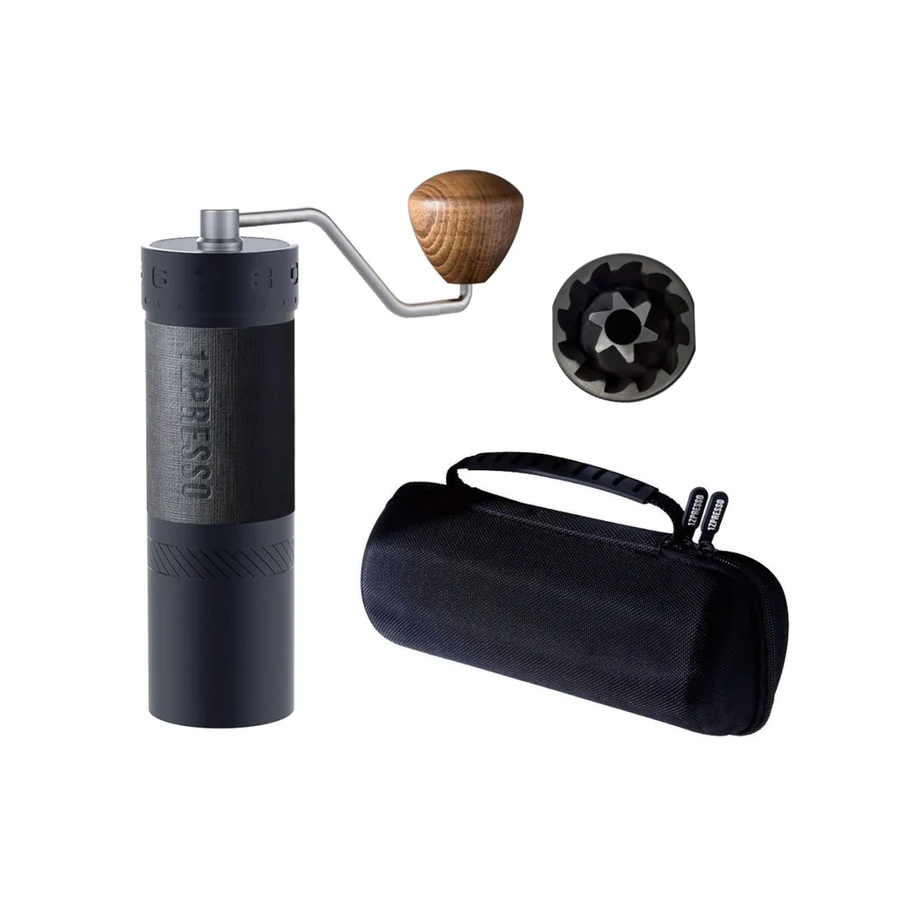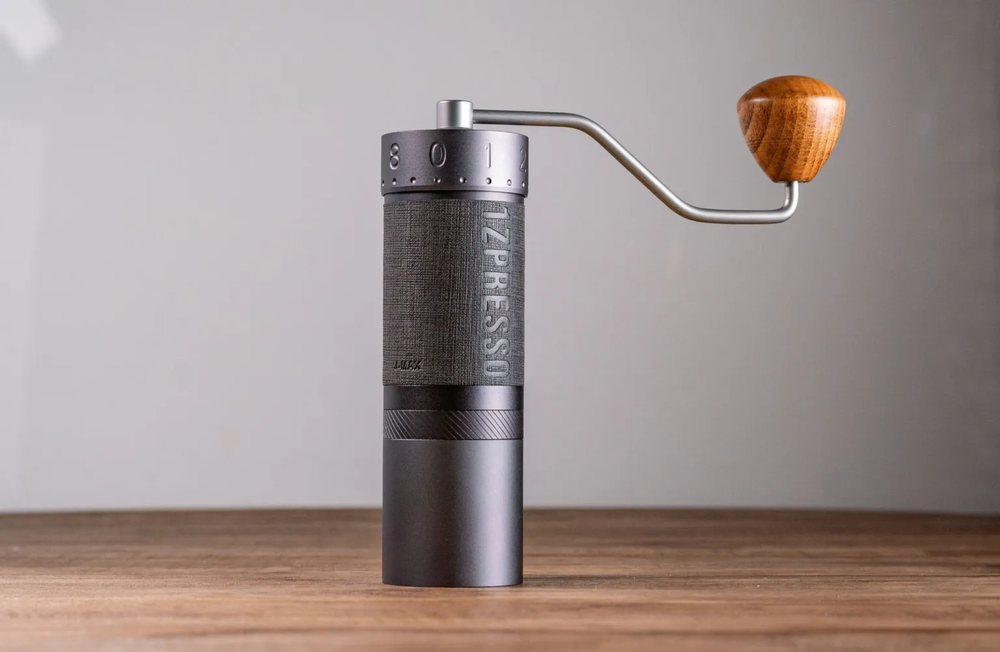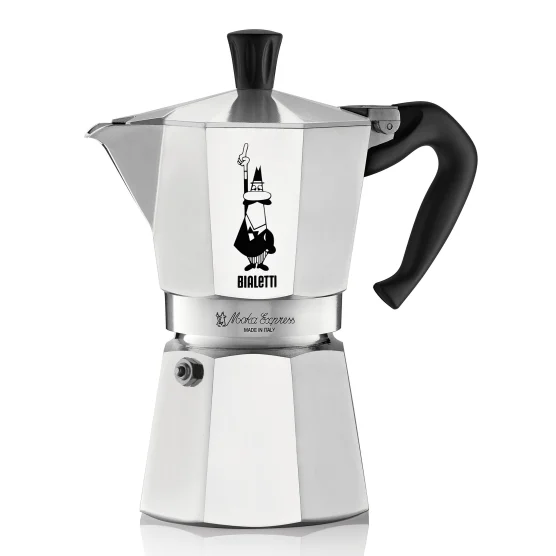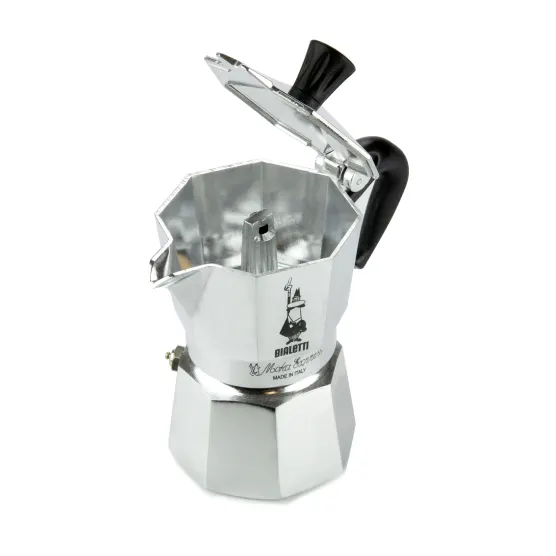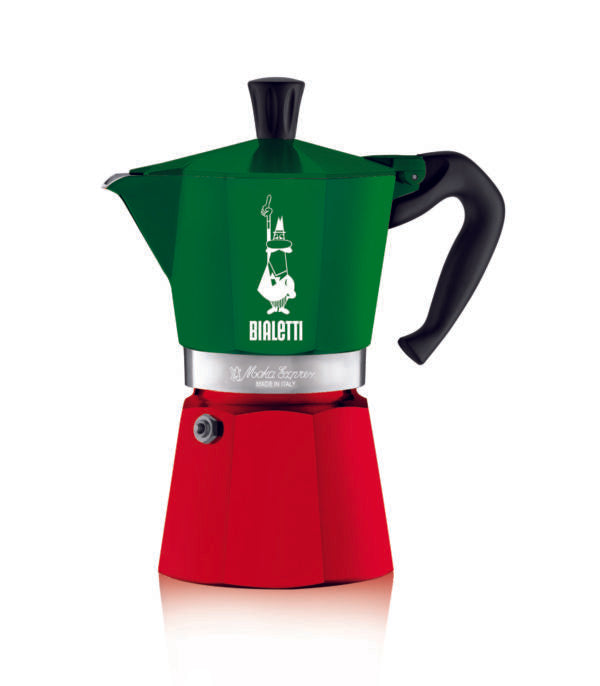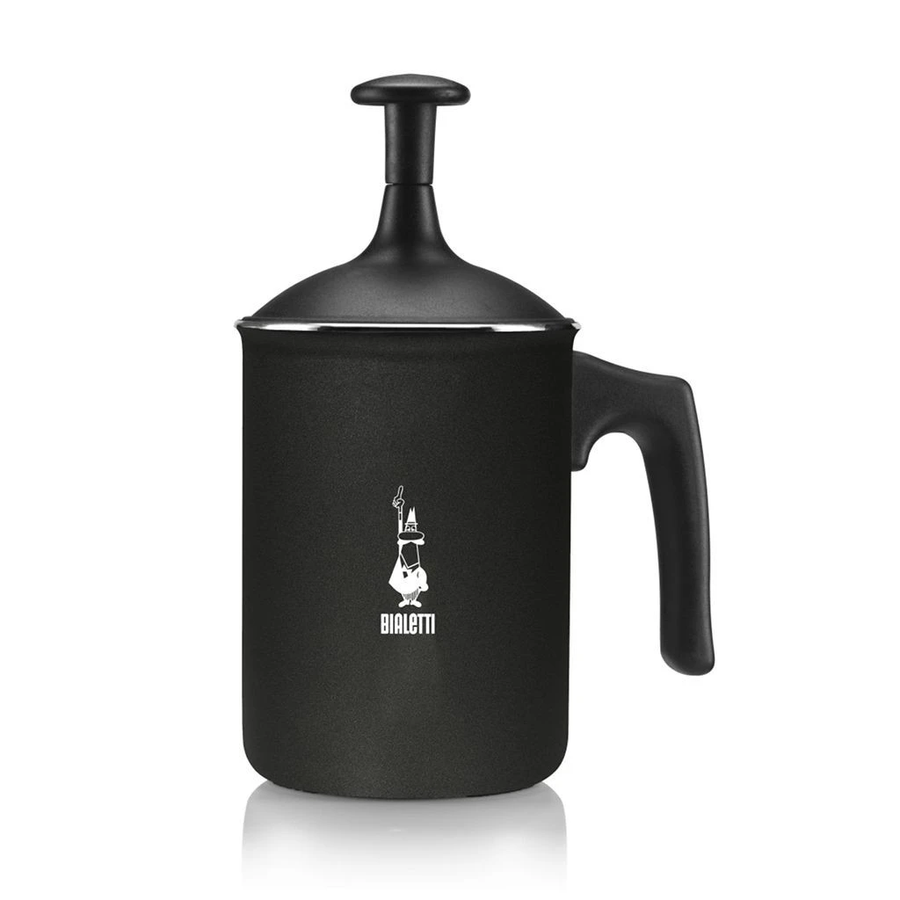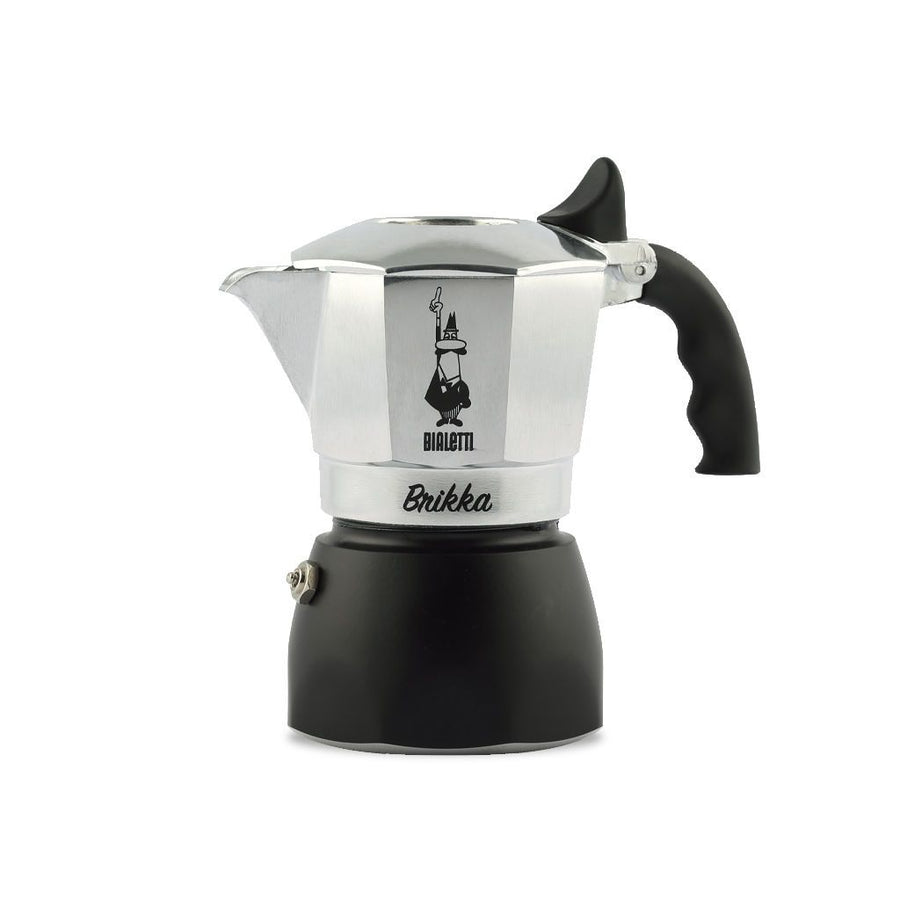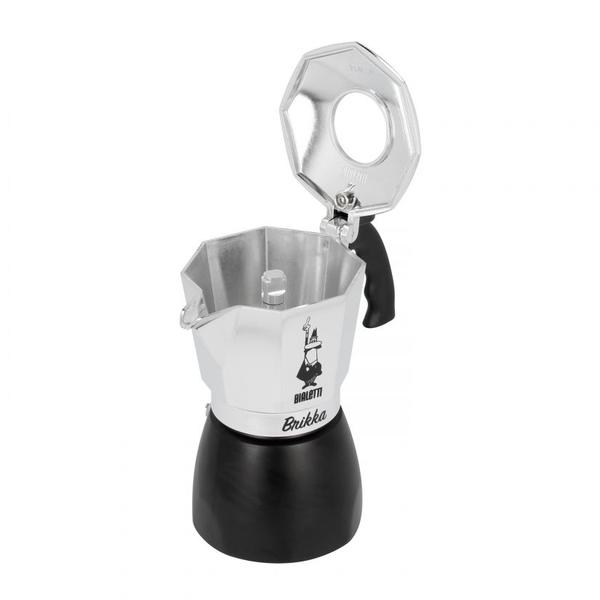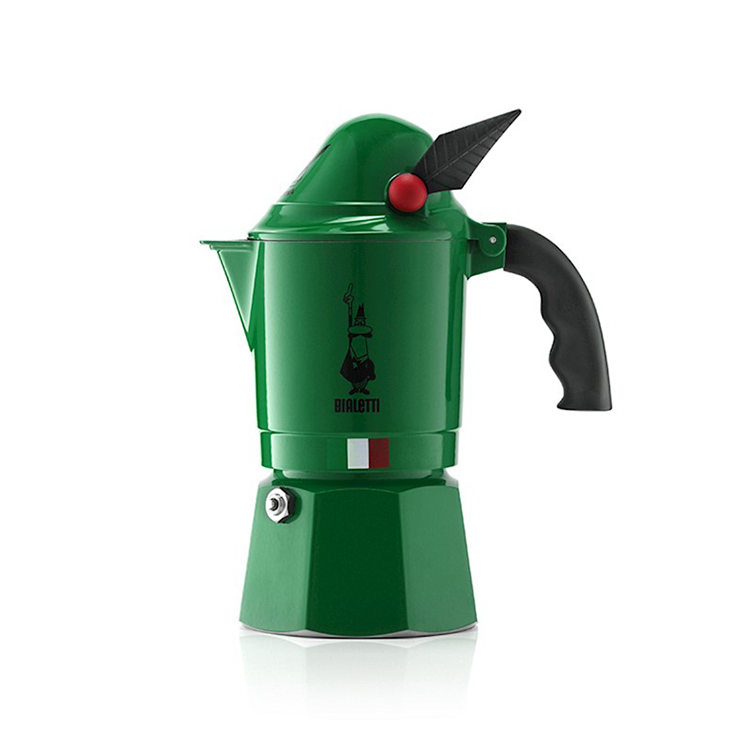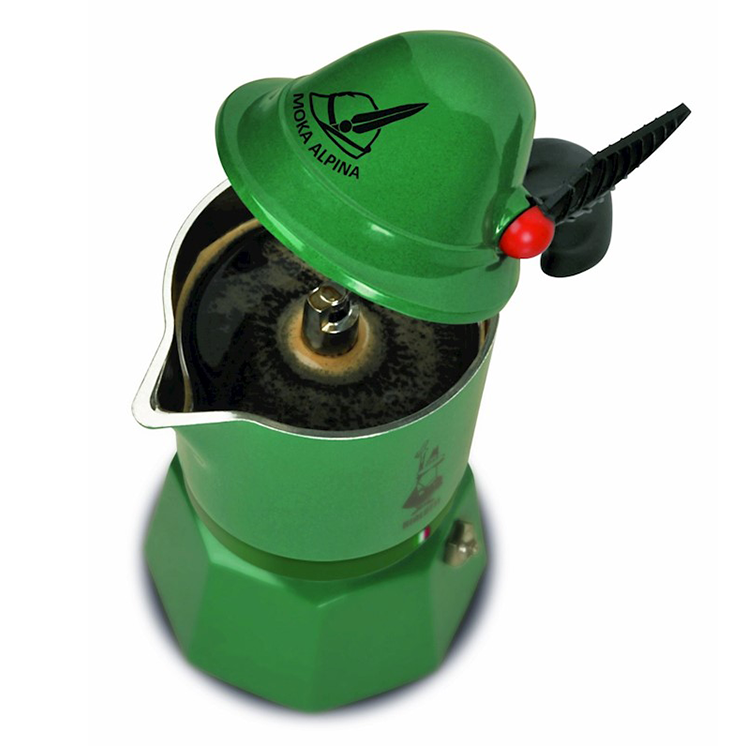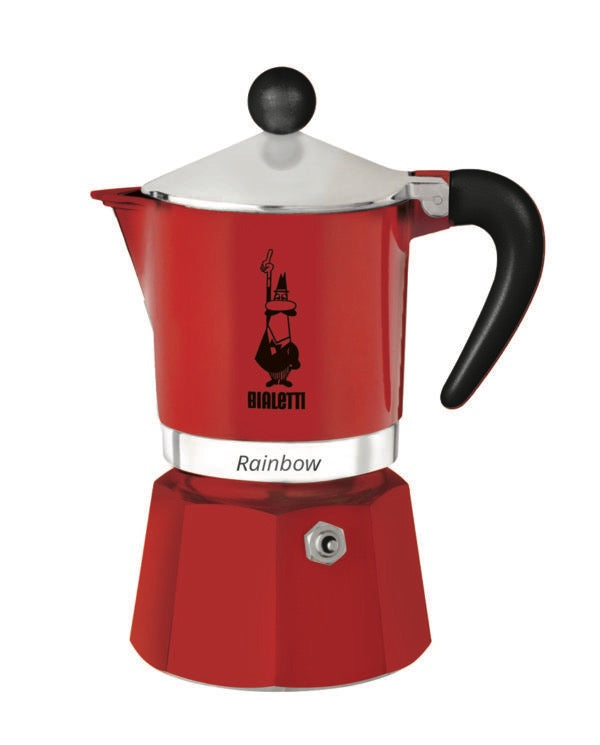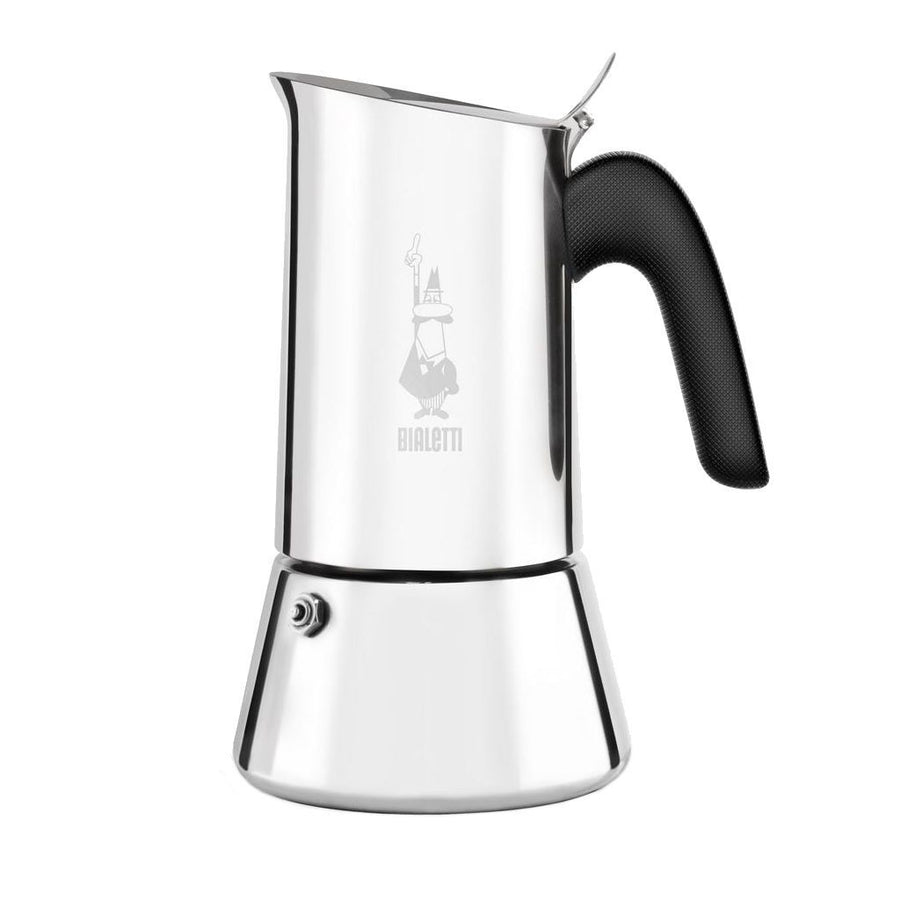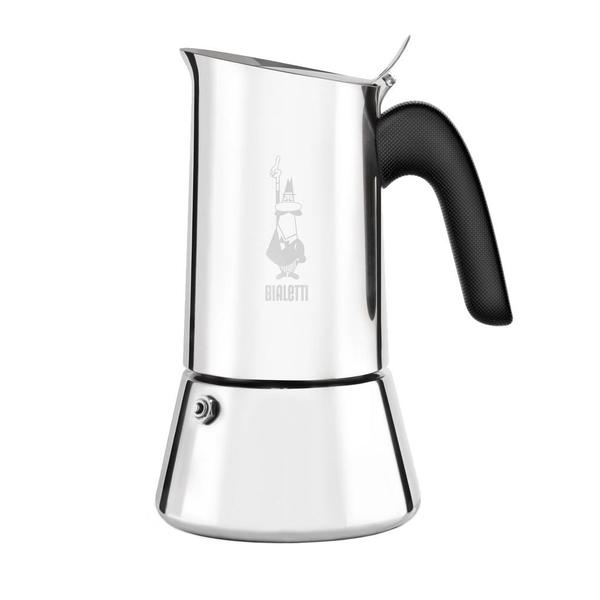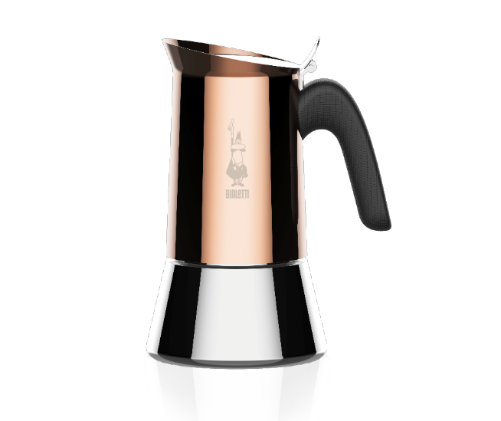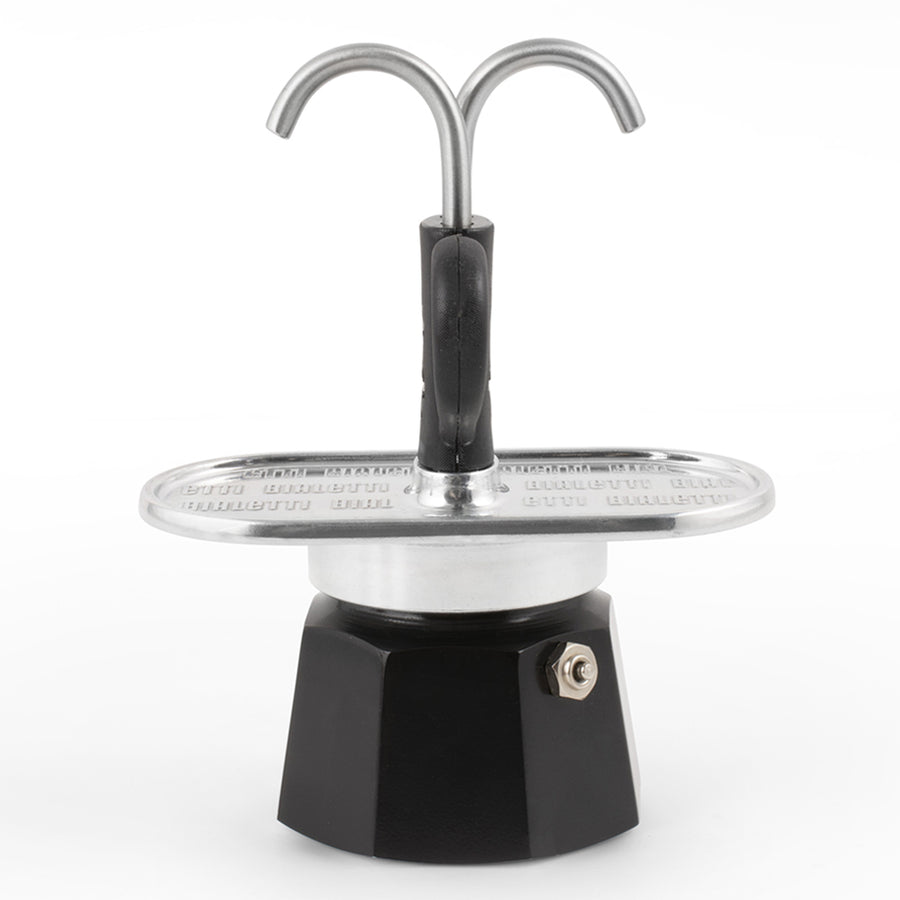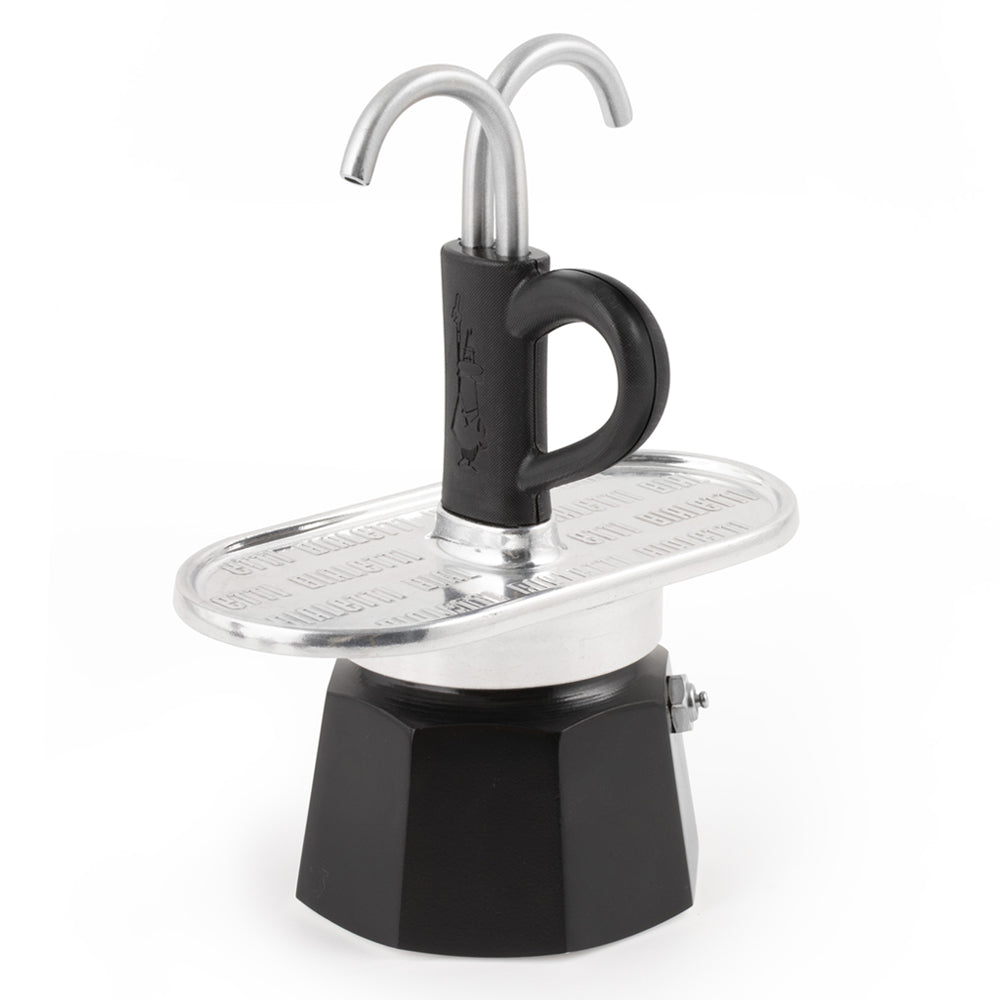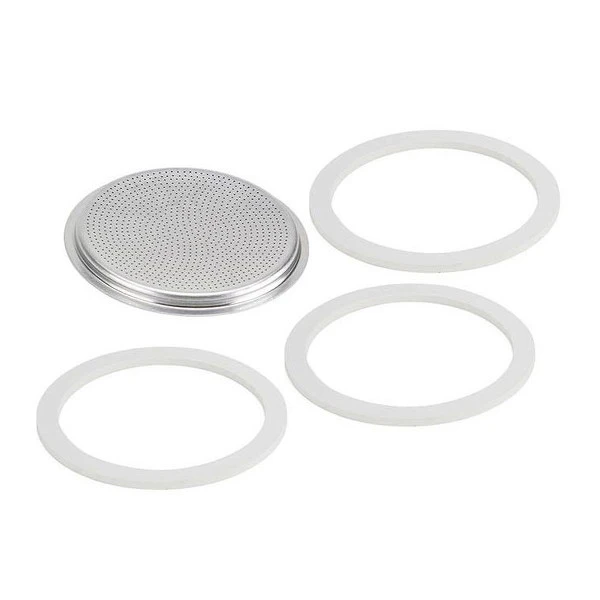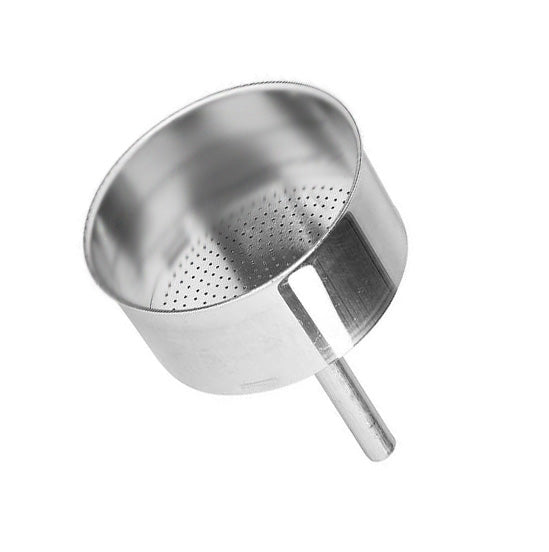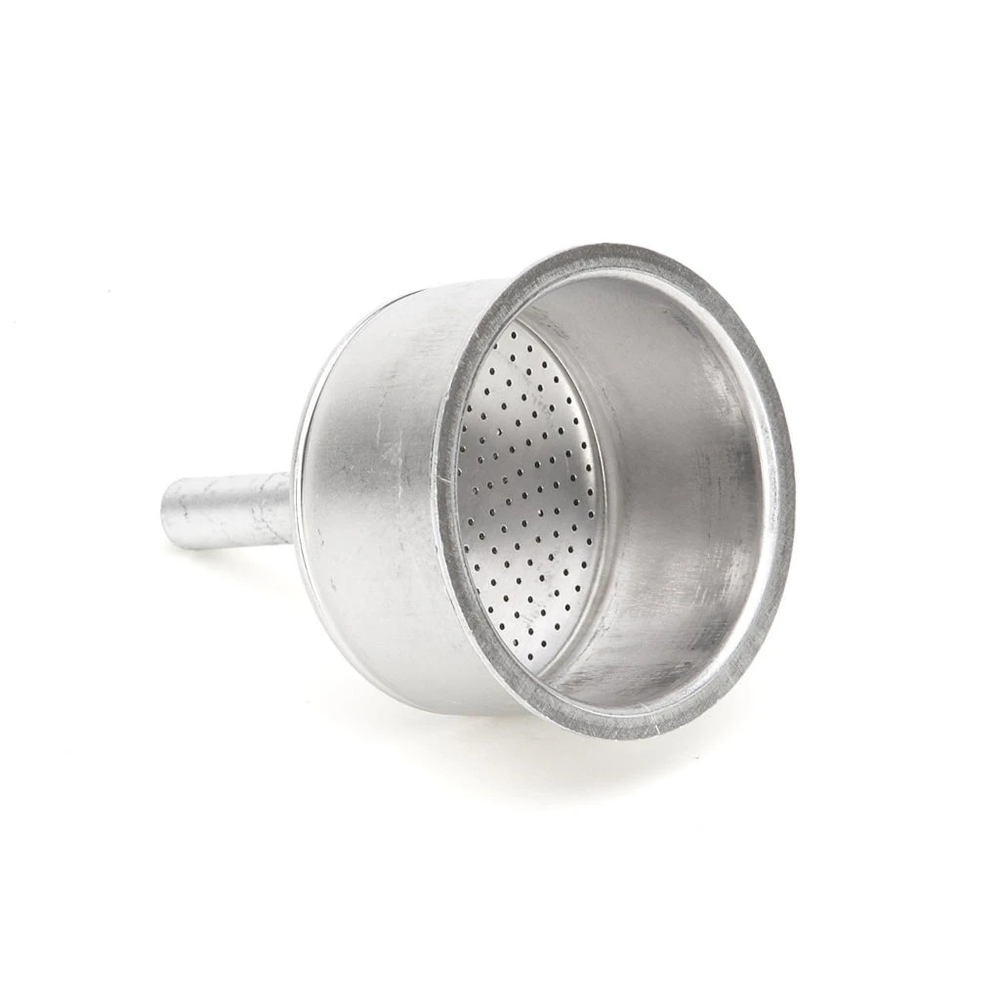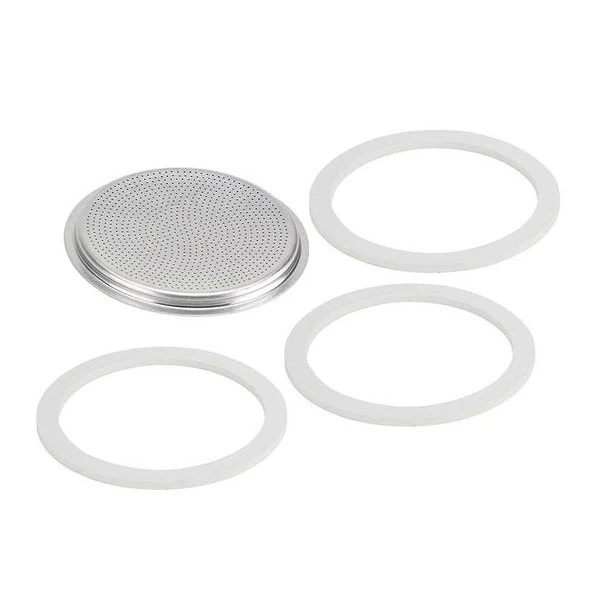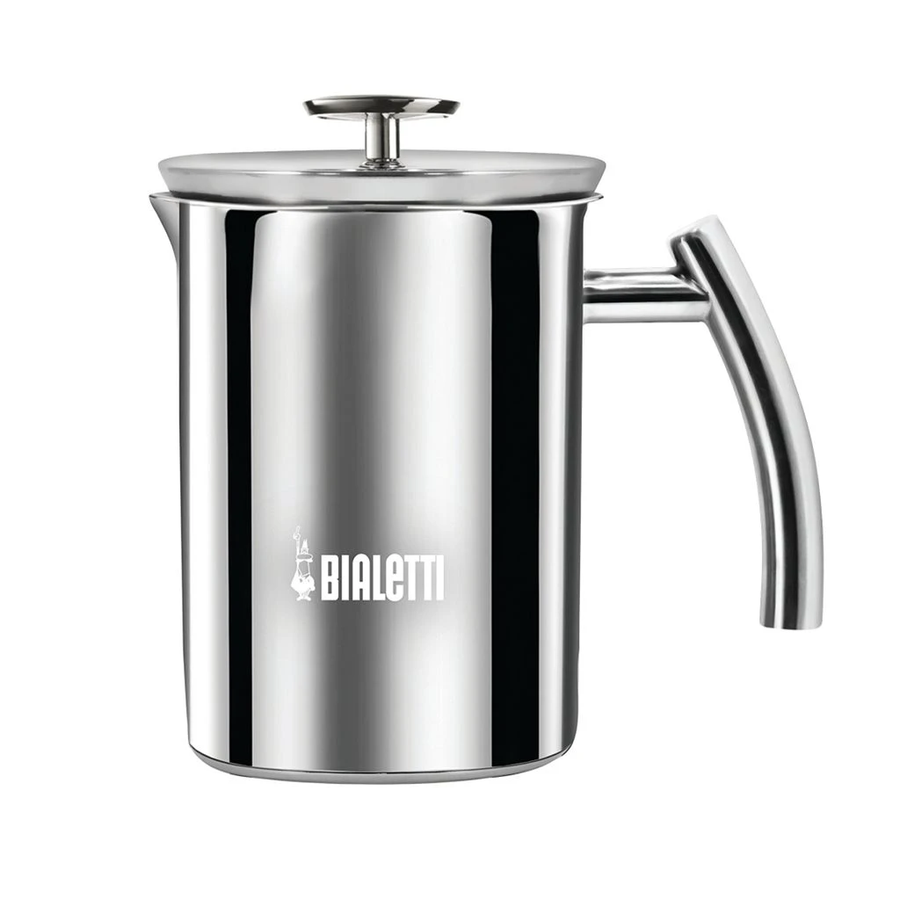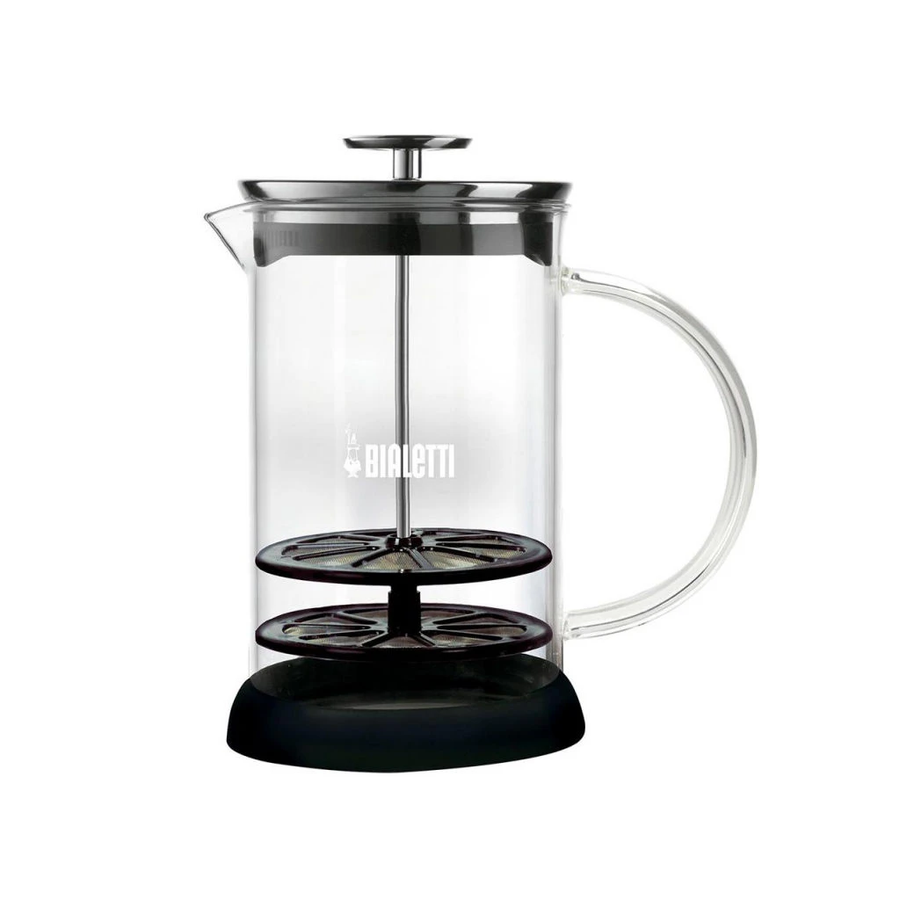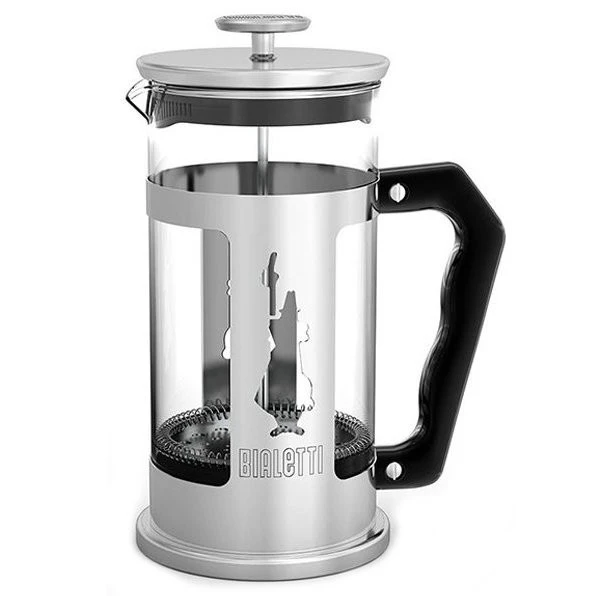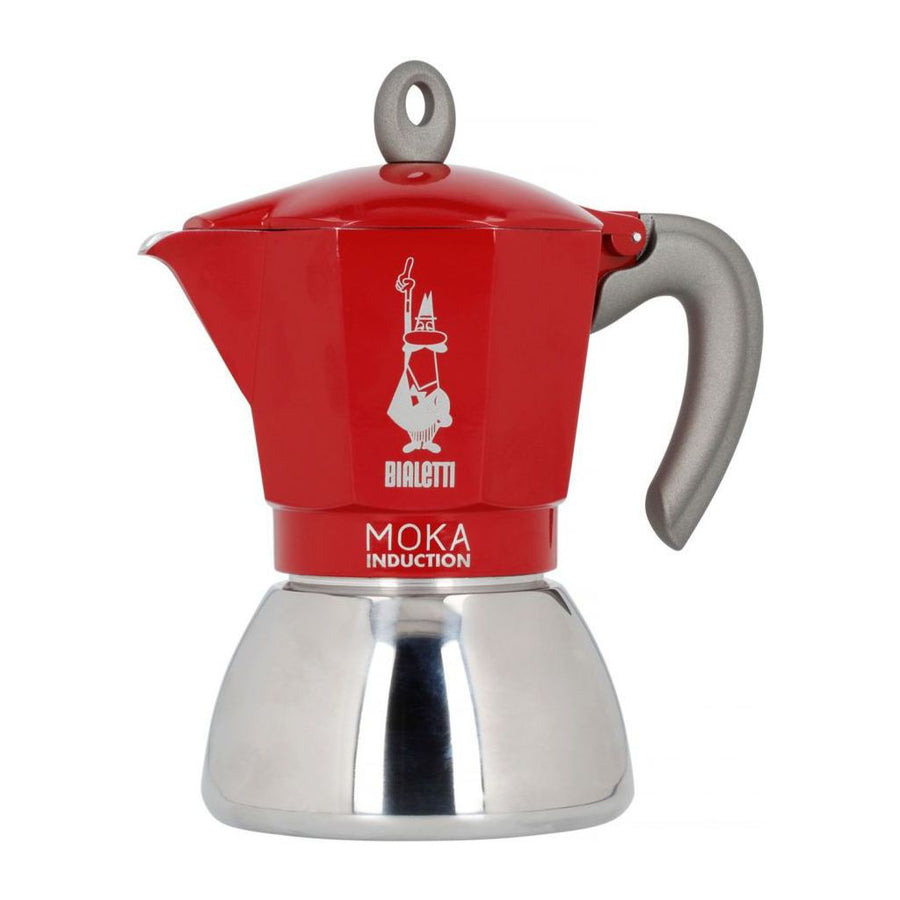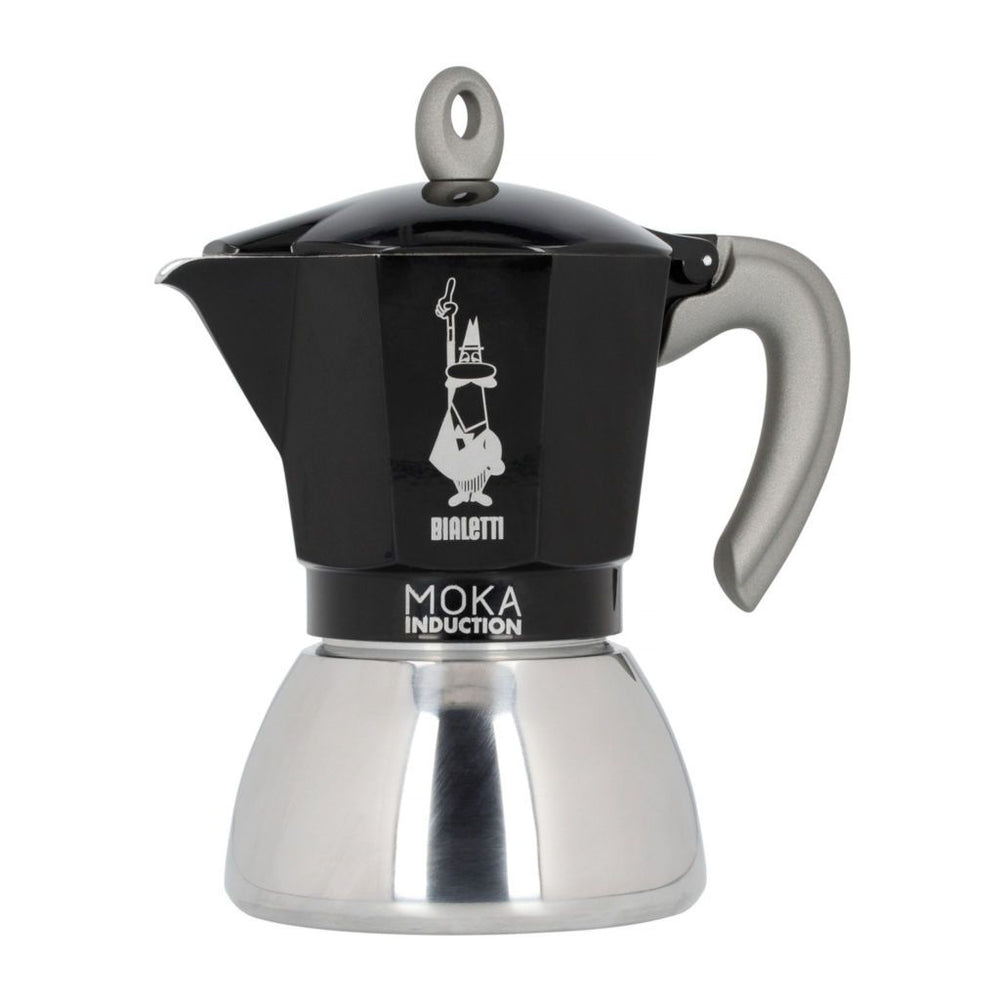The tale of Bialetti is not just about a coffee pot; it's a story woven with innovation, Italian craftsmanship, and the pursuit of the perfect espresso. It all started in the early 1900s when Alfonso Bialetti, armed with metalworking skills honed in France, returned to Piedmont with a vision that would forever change the way we enjoy coffee at home.
From the humble beginnings of a small workshop in Crusinallo, Bialetti's journey is a testament to how a simple yet brilliant idea can transform into a global phenomenon. The Moka Express, born from Alfonso's ingenuity, has become an indispensable part of Italian culture and kitchens worldwide, symbolizing the essence of Italian creativity and the joy of a well-brewed cup of coffee.
History of Bialetti
In the heart of Piedmont, Italy, Alfonso Bialetti embarked on a journey in 1919 that would forever change the way people enjoy coffee. Originally a metal worker, Bialetti transformed his experience in the French aluminium industry into a groundbreaking venture. By establishing his own metal and machine workshop in Crusinallo, he laid the foundation for a brand synonymous with quality and innovation in coffee making.
This period marked the beginning of Bialetti's legacy, driven by Alfonso’s unparalleled vision and creativity. He was inspired by the simplicity of the modern washing machines of his time, particularly their use of a central pipe to direct water. From this observation, Bialetti conceived the idea for the Moka Express, a coffee maker that simplified the brewing process without sacrificing the taste or quality of the coffee.
The invention of the Moka Express was not just a testament to Bialetti's ingenuity but also a reflection of Italian design excellence. Its distinctive octagonal shape not only optimized heat distribution for better brewing but also captivated users with its unique aesthetics.
By the 1930s, the Moka Express had begun its journey to becoming a household staple, not just in Italy but around the world. Its ability to brew rich, espresso-like coffee easily and affordably brought the cafe experience into homes. Today, Bialetti's invention remains a cherished part of Italian culture and global coffee brewing practices, with millions of units sold worldwide.
Beyond the Moka Express, Bialetti has continued to innovate, expanding its product range to include various coffee makers and kitchenware, each reflecting the brand's commitment to quality, design, and the pleasure of a perfectly brewed cup of coffee. The legacy of Alfonso Bialetti and his initial workshop in Crusinallo exemplifies the enduring impact of visionary ideas and the transformative power of simple, effective design in everyday life.
The Birth of Bialetti
In the heart of Italy, amidst an evolving coffee culture, Alfonso Bialetti's vision melded with the burgeoning potential of aluminum to mark the inception of the Bialetti brand. After his return from France, where he acquired invaluable experience in the aluminum industry, Bialetti established his own machine shop in 1918. This period heralded the dawn of Bialetti within an area already recognized since World War I for its prowess in manufacturing metal housewares.
The spark that ignited Bialetti's innovative journey was inspired by a simple, mundane observation. During the 1920s, the local laundry method caught Bialetti's attention – a method where water was boiled in tubs with a central pipe drawing and redistributing the soapy water over the laundry. This everyday sight led Bialetti to an epiphany: a similar mechanism could revolutionize home coffee brewing. The concept was simple yet groundbreaking – a coffee machine that mimicked this process to brew rich, espresso-style coffee within the comfort of one's home.
Thus, the iconic Moka Express was born. Renowned for its unique design and unmatched ability to extract coffee with precision, the Moka Express swiftly transcended its humble origins. It wasn't just a coffee maker; it was an invitation to experience the café-quality espresso at home. The Moka Express's anatomy – its lower chamber for water, a filter basket for ground coffee, and an upper chamber for the finished brew – was a testament to Bialetti's genius. This design ensured a seamless brewing process, making it immensely popular among coffee enthusiasts worldwide.
Today, the Moka Express exists in numerous sizes, catering to diverse preferences. Each size is tailored to brew a 30ml concentrated shot, echoing the original intent to deliver a robust and flavorful coffee experience. Despite its traditional association with stovetop brewing, Bialetti has embraced innovation with the introduction of an induction adaptor plate, ensuring the Moka Express's relevance in modern kitchens.
The story of Bialetti's inception is more than a tale of innovation; it's a journey of creating an enduring legacy that revolutionized coffee brewing for households globally.
The Birth of the Moka
In the heart of Italy, the 1920s were brewing more than just an artistic and cultural renaissance; they were the backdrop to the birth of a revolutionary coffee-making invention. Alfonso Bialetti, leveraging his experience in the aluminum industry after returning from France, embarked on a mission to change how people enjoyed their coffee at home. It was the confluence of coffee's burgeoning popularity across Italy and Bialetti's entrepreneurial vision that set the stage for the birth of the iconic Moka Express.
Observing the local laundry methods of the time, where water was boiled and redistributed over clothes through a central pipe, Bialetti experienced a spark of genius. He saw potential in adapting this mechanism for brewing coffee, envisioning a device that could emulate the espresso experience outside the confines of cafés. In 1933, this insight led to the creation of the Moka Express, a coffee maker that used aluminum, a material that was both widely available and affordable, thanks to Italy's burgeoning industrial capabilities.
The Moka Express, characterized by its distinctive octagonal shape, quickly gained popularity, not just in Italy but globally. It comprised three critical chambers: the bottom chamber for water, a filter basket for ground coffee, and an upper chamber where the brewed coffee would eventually collect. This design wasn’t just innovative; it was transformative, allowing people to brew espresso-style coffee with simplicity and efficiency at home.
As the Moka Express made its way into countless kitchens worldwide, it not only democratized the espresso experience but also cemented Bialetti's legacy in the coffee culture. The design and functionality of the Moka Express have remained largely unaltered since its inception, a testament to the ingenuity of Alfonso Bialetti and the timeless appeal of this coffee-brewing method. Its significance is underscored by its permanent exhibits in prestigious institutions such as MoMA and the Smithsonian Design Museum, marking it as a symbol of design and innovation in the 20th century.
Inspiration Behind The Logo
When delving into the history of Bialetti, one can't help but notice the distinctive logo that has become synonymous with quality and tradition in coffee-making. The figure on the Bialetti Moka Express is not merely a decorative element but embodies a rich legacy. This character, known as "L’omino con i baffi" or the little man with a mustache, is actually a caricature of Alfonso Bialetti himself, the founder of the company and the inventor of the Moka Express.
Alfonso Bialetti's innovative spirit and commitment to quality coffee brewing have made him a revered figure in the coffee industry. The logo was designed to give a personal touch to the product, making it stand out in a competitive market. The choice to use Alfonso's likeness wasn’t just a personal vanity but a mark of assurance to the customers that every Moka pot holds the manufacturer's seal of approval and commitment to excellence.
The significance of the logo extends beyond the visual appeal; it represents the brand's heritage and Italian craftsmanship. Over the years, this figure has become an iconic symbol, representing both the brand and the broader Italian coffee culture. It assures users that the tradition of preparing rich, authentic espresso at home continues with every use of the Moka Express.
Moreover, the presence of "L’omino con i baffi" on every Moka Express serves as a constant reminder of Bialetti's origins and its evolution into a global household name. The Bialetti logo has not only marked its products but has also embedded itself into the cultural fabric of coffee lovers around the world, becoming a timeless emblem of both innovation and tradition in coffee brewing.
Rodine and Bialetti Join Forces
In the journey of Alfonso Bialetti's company towards becoming a household name in coffee brewing, a pivotal partnership played a crucial role. Bialetti's collaboration with Luigi di Ponti, the inventor who helped refine the Moka Express’ design, marked a significant milestone. However, it was the eventual partnership with Rodine that solidified its position in the market. This alliance was not just a business decision but a strategic move that leveraged Rodine's strengths in distribution and marketing to catapult Bialetti into international recognition.
Rodine's extensive network and marketing prowess ensured that the Moka Express found its way into homes across Italy and beyond. They worked diligently to craft a narrative around the product that resonated with the masses, focusing on ease of use, elegant design, and the promise of authentic Italian espresso at home. Their efforts were instrumental in changing the public's perception of home-brewed coffee, positioning the Moka Express as an indispensable tool for coffee enthusiasts.
The synergy between Bialetti's innovative product design and Rodine's marketing strategies created a perfect storm. Sales figures began to soar, with millions of units sold, making the Moka Express a symbol of Italian craftsmanship and coffee culture. Their collaboration ushered in a new era for coffee brewing, setting the stage for the Moka Express to become a cultural icon.
Rodine's role in Bialetti's success story is a testament to the power of strategic partnerships in the business world. Their foresight in recognizing the potential of the Moka Express and their commitment to its promotion were key factors in the widespread adoption of this coffee brewing method. As a result, the Moka Express has not only remained relevant but has continued to be a preferred choice for coffee preparation in homes around the globe.
The Origin of The First Bialetti Store
In the heart of Italy, shortly after returning from France where he was immersed in the aluminum industry, Alfonso Bialetti laid the foundation for what would become an iconic name in coffee brewing. In 1918, he established his own machine shop in Crusinallo, an area known since World War I for its expertise in manufacturing metal housewares. This strategic move marked the beginning of Bialetti’s journey to revolutionize the way people enjoyed coffee at home.
The inception of Bialetti’s first store was not just a commercial venture; it was a birthplace of innovation. Inspired by the local women's laundry methods, which involved boiling wash in tubs with a central pipe that redistributed water over the clothes, Bialetti conceived the idea of the Moka Express. This groundbreaking invention mirrored the tubs' mechanism, using pressure to push boiling water through coffee grounds to produce espresso-style coffee in private homes.
The opening of the first Bialetti store introduced the Moka Express to the public, setting the stage for a new era in home-brewed coffee. Unlike the traditional Napoletana and Milanese methods, which did not brew coffee under pressure, the Moka Express offered a novel way to enjoy a rich, authentic espresso without needing to visit a café.
Bialetti's innovative approach not only transformed coffee brewing habits in Italy but also set a new standard in coffee making worldwide. The first Bialetti store was more than just a retail space; it was a hallmark of Italian ingenuity and craftsmanship, offering a glimpse into the future of coffee culture. Through this store, Bialetti not only sold the Moka Express but also fostered a community of coffee enthusiasts, eager to adopt this novel brewing method in their daily routines.
As the popularity of the Moka Express soared, the significance of the first Bialetti store became evident. It was the genesis of a legacy that would go on to shape the global coffee landscape.
Bialetti Gets Listed
Bialetti's journey from a small store in Crusinallo to becoming a global icon in coffee culture is a testament to innovation and tradition blending seamlessly. The Moka Express, born from Alfonso Bialetti's vision and ingenuity, has not only stood the test of time but also paved the way for modern coffee brewing techniques. As the brand continues to foster a community of coffee lovers, its impact on how the world enjoys its espresso remains unmatched. Bialetti's story is a shining example of how a simple idea can brew into a worldwide legacy, making every cup of coffee a tribute to its rich history.
Frequently Asked Questions
Is Bialetti no longer made in Italy?
Bialetti continues to manufacture the iconic moka coffee pot in Italy, upholding the tradition of Italian craftsmanship. However, they also operate factories in Romania and China for other product lines.
How long does a Bialetti last?
With proper care, your Bialetti can last up to 100 years. Regular replacement of the gasket and filter is essential for maintaining its performance over the years.
What is special about Bialetti?
The Gioia model by Bialetti brings the essence of true Italian espresso into your home. Its ultra-compact design and smart features make it a standout addition to the Bialetti espresso machine range.
Is it worth buying Bialetti?
Yes, the Bialetti Moka Express is a top performer among moka pots, distinguished by its original design and efficient brewing capabilities. It's a worthwhile investment for coffee enthusiasts.
What is the Bialetti logo?
The Bialetti logo features the mascot l'omino con i baffi, or "the mustachioed little man," a caricature of Alfonso Bialetti's son, Renato, signifying the brand's rich family legacy.



